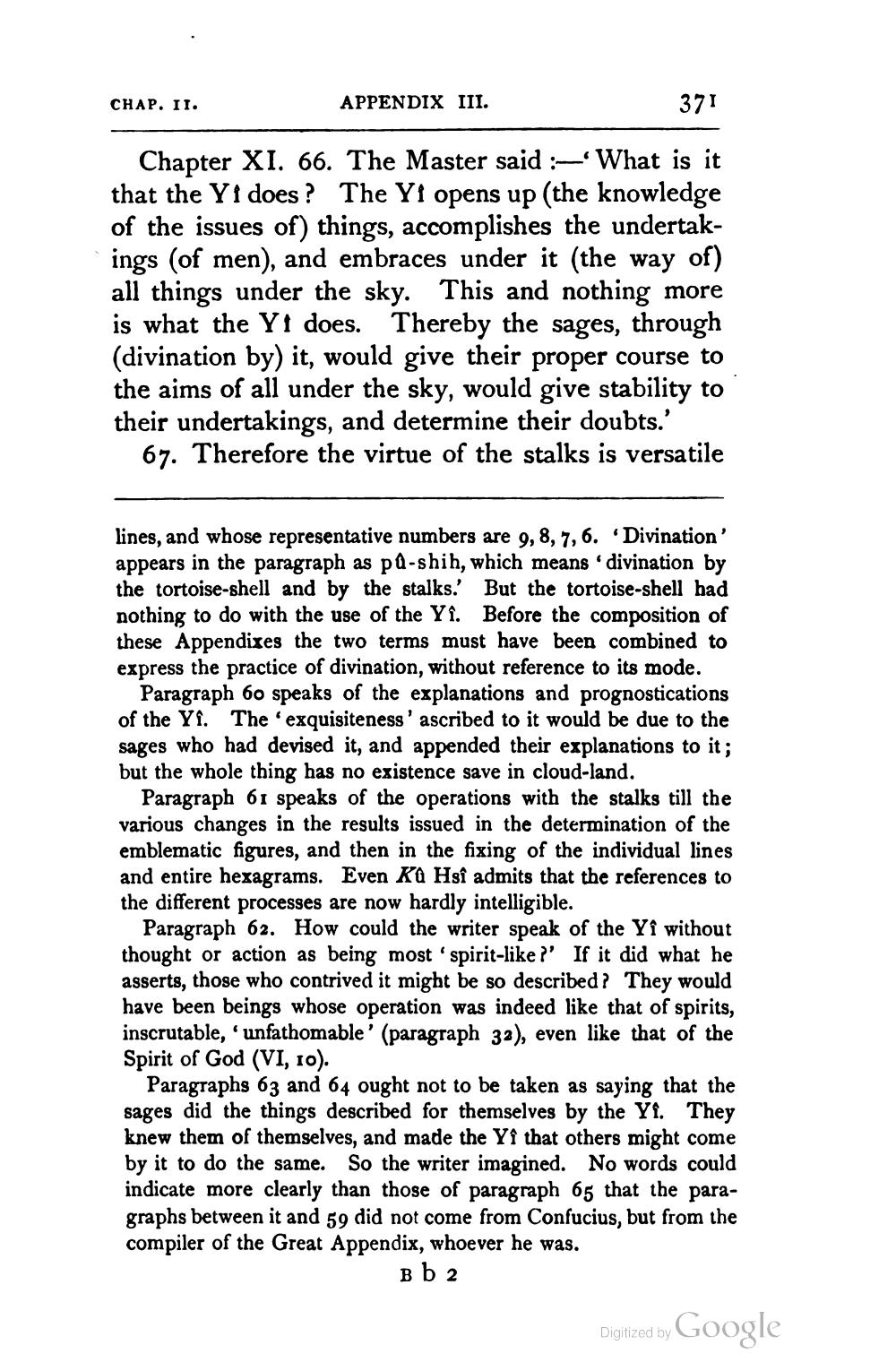________________
CHAP. II.
APPENDIX III.
371
Chapter XI. 66. The Master said :—What is it that the Yi does ? The Yt opens up (the knowledge of the issues of) things, accomplishes the undertakings (of men), and embraces under it (the way of) all things under the sky. This and nothing more is what the Y1 does. Thereby the sages, through (divination by) it, would give their proper course to the aims of all under the sky, would give stability to their undertakings, and determine their doubts.'
67. Therefore the virtue of the stalks is versatile
lines, and whose representative numbers are 9, 8, 7, 6. 'Divination' appears in the paragraph as pa-shih, which means 'divination by the tortoise-shell and by the stalks. But the tortoise-shell had nothing to do with the use of the Yî. Before the composition of these Appendixes the two terms must have been combined to express the practice of divination, without reference to its mode.
Paragraph 60 speaks of the explanations and prognostications of the Yi. The exquisiteness' ascribed to it would be due to the sages who had devised it, and appended their explanations to it; but the whole thing has no existence save in cloud-land.
Paragraph 61 speaks of the operations with the stalks till the various changes in the results issued in the determination of the emblematic figures, and then in the fixing of the individual lines and entire hexagrams. Even Ka Hsi admits that the references to the different processes are now hardly intelligible.
Paragraph 62. How could the writer speak of the Yi without thought or action as being most 'spirit-like?' If it did what he asserts, those who contrived it might be so described? They would have been beings whose operation was indeed like that of spirits, inscrutable, unfathomable' (paragraph 32), even like that of the Spirit of God (VI, 10).
Paragraphs 63 and 64 ought not to be taken as saying that the sages did the things described for themselves by the Yi. They knew them of themselves, and made the Yi that others might come by it to do the same. So the writer imagined. No words could indicate more clearly than those of paragraph 65 that the paragraphs between it and 59 did not come from Confucius, but from the compiler of the Great Appendix, whoever he was.
B b 2
Digitized by Google




